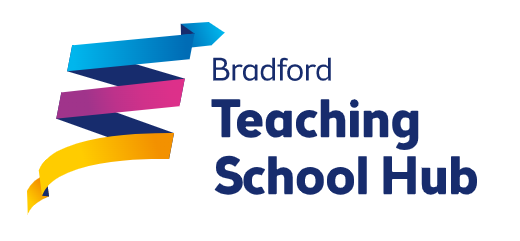Here are some answers to common questions about results day and the awarding of results.
How will I access my results this summer?
Because of the unique circumstances this year, results will be published on Cedar.
- All level 3 qualifications (including A level, BTEC and WJEC qualifications) will be published on Tuesday 10 August at 8:30am.
- All level 2 qualifications (eg. GCSE Maths and GCSE English) will be published on Thursday 12 August at 8:30am.
It is important that students collect their exam board certificates as students will require them for future employment and study. Students can provisionally collect these from college reception from January 2022
Make sure you can log into Cedar
In advance of results day, please make sure that you can log into Cedar. If you have forgotten your password or if it has expired please visit:
https://nclt.ac.uk/it-faqs/
Please note that you should expect a significant delay in accessing your results if you do not make sure that you are able to log into Cedar in advance of results day. We will not be able to provide any results by telephone or email.
Access to your Cedar account will be extended over the Summer period to allow you to access your results. Only under exceptional circumstances, can you request that your results are posted by mail. Should you still require them to be posted, please email exams@nclt.ac.uk with confirmation of your full name, your student ID number and postal address. Please note that these will not be posted until after the results day itself. Requests for postage can only be accepted from you as the student and NOT a third party (i.e parent/guardian). You can request to have a printed Results Slip should you require this for employment purposes in the interim time period before January 2022 when your certificates will be available to collect from the College.
How can I get support and advice about my next steps, my university place or UCAS clearing on results day?
Don’t worry – help will be on hand if you need some extra help and guidance. We’ll share with you more details about this closer to results day.
How have grades been awarded this year?
You can access a recording of our information evening about the awarding of grades that took place in the spring term here:
You can access the college’s Centre Policy which sets out the full details of how grades have been awarded at New College, and view Ofquals Student Guide below:
Where can I access the evidence used to determine my final grades?
All of the assessment grades and NEA grades (where applicable) used to determine grades this year are available to students in the normal way via Cedar, in the markbook. Cedar 5 grades and NEA grades will be published on 11 June 2021. Teachers have communicated to students in detail the specific evidence that would be used for their course.
No formula has been used and teachers have adopted a holistic approach when reviewing the evidence available. Teachers will have placed greater emphasis on assessments towards the end of the course than those earlier in the course.
Have my individual circumstances been taken into consideration?
Teachers have communicated with students where individual variations have been made to the evidence used, including because of mitigating circumstances. Students were provided an opportunity to notify the college if they believed there were errors or omissions. Such cases will be reviewed and decisions of the college communicated with students on or before Friday 11 June. Similarly, students were provided an opportunity to notify the college if they believed there were any mitigating circumstances with respect to the Cedar 5 assessments. Such cases will be reviewed and decisions of the college communicated with students on or before Friday 11 June.
Teachers have taken steps to ensure that access arrangements, where approved, were in place for assessments / NEA. Where access arrangements were introduced part-way through the course, or modified, this has been taken into consideration when reviewing the evidence used.
The decisions of the college about individual variations and mitigating circumstances / special consideration are final. Any concerns should now be addressed via the formal appeals process after the final results are published, as determined by the Joint Council for Qualifications (JCQ).
How were Cedar 4 and 5 assessments designed?
We shared with students details of the general topic areas that would be assessed in the Cedar 4 assessments (April) and Cedar 5 assessments (May).
Teachers designed the assessments collaboratively, working as a team across our three sixth form colleges, aiming to include a wide range of A level topics across the two assessments. Teachers have designed the papers using questions from a range of different sources, including past paper and practice paper questions. Standardisation meetings, involving all teachers of a course from across our three colleges, ensure that teachers have marked accurately and consistently, in line with exam board mark schemes and standards, so that the grades awarded for these final assessments are fair.
When will I be able to see the grades I achieved in my Cedar 5 assessments / NEA?
Results for Cedar 5 assessments will be published on Cedar on 11 June, along with indicative grades for NEA (where NEA was a formal component of the qualification). We are not permitted to share marks or grades for courses where the entire grade will be based on coursework, such as A level art, textiles, graphics and photography courses, and EPQ, until the official results day.
Can I have my exam scripts for Cedar 4 and 5 assessments?
JCQ has asked schools and colleges to retain as much evidence as possible and for this reason we have not returned exam scripts to students, in case they are requested for external quality assurance carried out by the awarding body or in the event of an appeal. We are not in a position to provide individual feedback about student performance in those assessments or to discuss the grades awarded for those assessments.
Any complaints about the final grades awarded, or because of perceived errors relating to procedure or administration, including the evidence used, will be dealt with in their entirety via the formal appeals process after the final results are published, as determined by the Joint Council for Qualifications (JCQ).
Will my final grade be the same as my Cedar 5 grade?
No, not necessarily, but it might potentially be the same.
If your course is an exam-only course, i.e. without coursework, the college will submit a teacher assessed grade that is either in line with your Cedar 5 result, or better if teachers believe a higher grade is well-supported by all of the other evidence used.
If your course has a coursework element (NEA) this will also be taken into consideration alongside your Cedar 5 result, and the other evidence used. Consideration of NEA alongside Cedar 5, and taking into account other evidence used, might support an overall result which is in line with Cedar 5, higher than Cedar 5, or lower than Cedar 5.
What if I disagree with the final grade I have been awarded on results day?
Teachers have used professional judgement when considering the evidence used to determine each student’s teacher assessed grade. To help ensure that grades have been awarded fairly and consistently, grades have been reviewed and determined by a group of teachers rather than an individual teacher, with additional checks by middle and senior leaders. This isn’t always an easy process, and there can sometimes be some evidence that points towards one grade, and some evidence that points towards another. In cases where there is evidence to support one grade or another, either grade is very likely to be a reasonable professional judgement even though a student would understandably prefer the higher grade to be awarded. The college is required to use professional judgement when considering the evidence, and must ensure that the overall grades awarded are neither too harsh nor too lenient. Students should not expect that the higher of two possible grades will necessarily be awarded when there is inconsistent evidence of student performance, or where there are borderline judgements to be made between two possible grades.
We recognise that some students will be pleased with their grades and some may be disappointed, as would be the case on a results day under normal circumstances. A student may believe that they deserve a higher grade than was awarded, but this does not necessarily mean that the college has failed to exercise reasonable academic judgement.
The Joint Council for Qualifications (JCQ) states:
“A reasonable judgement is one that is supported by evidence. An exercise of judgement will not be unreasonable simply because a student considers that an alternative grade should have been awarded, even if the student puts forward supporting evidence. There may be a difference of opinion without there being an unreasonable exercise of judgement.”
This means that in borderline cases where teachers are considering one grade and the grade below, teachers awarding the lower of the two grades would not be considered unreasonable where there is evidence that could support either of the grades. Although a student would understandably prefer the higher grade, and may be of the opinion that the higher grade should be awarded, an appeal is very unlikely to be successful if there is also evidence in support of the lower grade. Only in cases where a grade is clearly unsupported by the evidence is an appeal likely to be successful. When deciding whether to appeal, students are encouraged to remember that the exam board will not be determining whether they agree with the grade a student believes should be awarded, but whether a school or college’s judgement was unreasonable.
The college will not be in a position to discuss the grades awarded, or the rationale for the grades awarded, with individual students or parents. The process used to determine teacher assessed grades is set out in the Centre Policy. NCB Centre Policy
If a student believes there is an administrative or procedural error in determining grades, or that the college made an unreasonable exercise of academic judgement in the choice of evidence from which to determine the grade and/or the determination of the grade from that evidence, they may pursue an appeal. Students are advised to be mindful of the guidance above from JCQ regarding what is and is not a reasonable judgement when deciding whether to appeal.
What if I want to appeal after I have received my final results?
Only a student may submit an appeal. An appeal cannot be submitted by a parent or carer. Any appeals, complaints or concerns about grades awarded this summer will be dealt with in their entirety via the appeals mechanism, determined by JCQ. Please note that your grade may go down, remain unchanged, or go up as a result of an appeal.
There are two stages to appeals:
Stage 1 Centre Review
If you think your grade is wrong, you should first ask the college to check whether it made a mistake in determining or submitting your grade – this is called a Stage 1 Centre Review. To request a Stage 1 Centre Review you must complete an online form and a link will be available below from results day onwards. The form itself provides further detail about the review, including deadlines.
If we identify a mistake, we will submit a revised grade to the exam board to consider. Please note that your grade may go down, remain unchanged, or go up as a result of a Stage 1 Centre Review.
Stage 2 – Appeal to the Awarding Organisation
If the college doesn’t identify an error but you still believe that your grade is wrong, you can ask the college to submit a formal appeal to the exam board for you. We will provide a student with a link to a form requesting a Stage 2 Appeal after a requested Stage 1 Centre Review has been completed.
After a Stage 1 Centre Review is completed, a student may request a Stage 2 Appeal to the Awarding Body for any of the following reasons:
- There was an error in the way the college followed or applied its procedure for determining your teacher assessed grade
- The college did not make a reasonable judgement when deciding which evidence to use to determine your teacher assessed grade
- The college did not make a reasonable judgement about your grade based on the evidence gathered
The awarding organisation will consider whether a grade needs correcting. As a result of a Stage 2 Appeal your grade may go down, remain unchanged, or go up.
How do I obtain my official certificates for my results obtain in Summer 2021?
The official certificates for your grades obtained in Summer 2021 are printed by the awarding organisations and are received in College in November. Following quality checks and collation, you certificates will be available for collection in person from the main reception from January 2022 onwards. You will be asked to supply your original certificates at future employment interviews. Please click HERE for further information relating to certificates.


















